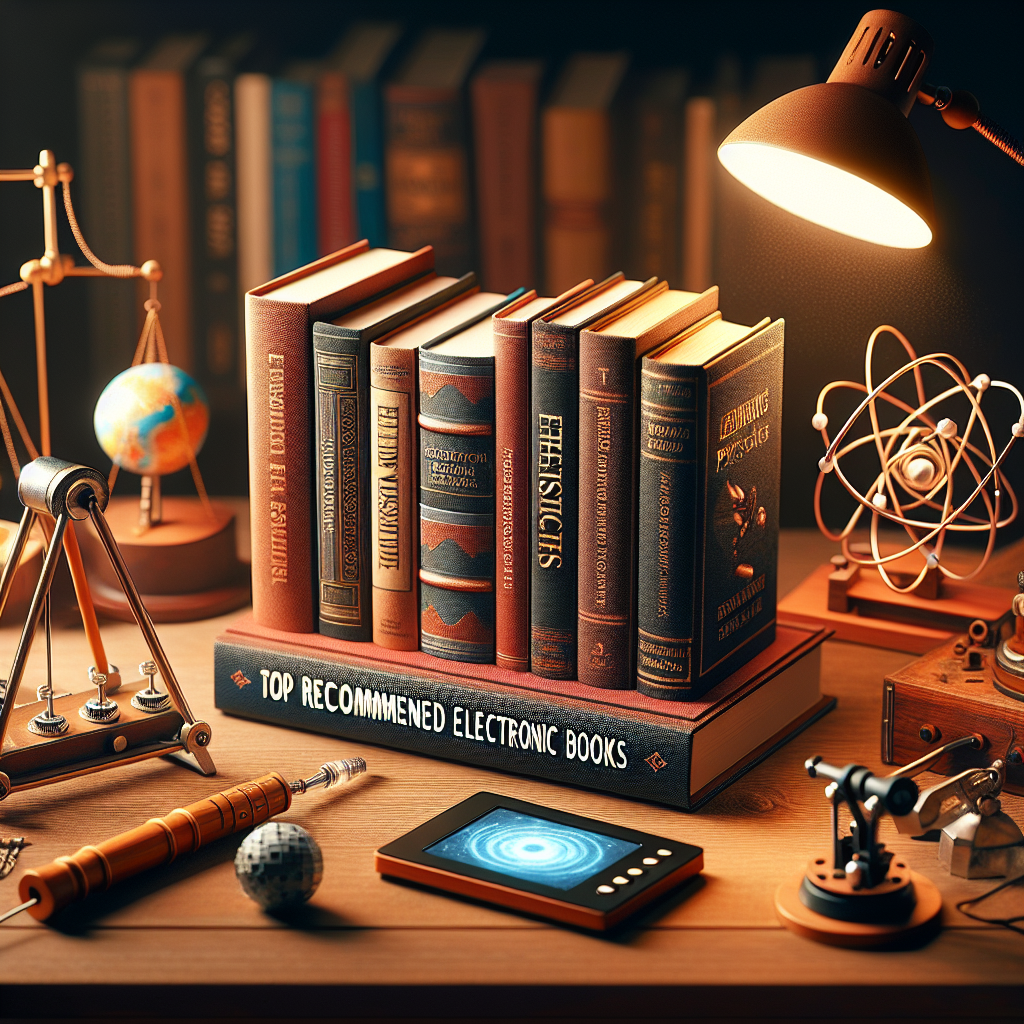===
For aspiring physicists, the journey into the world of electronics can often feel overwhelming. Mastering the intricate interplay between physics and electronics is crucial for those who wish to innovate and contribute to cutting-edge research or technologies. Unfortunately, many budding scientists find themselves grappling with gaps in their knowledge, lacking access to the right materials or guidance that could illuminate their path. This article presents the top recommended electronics books for aspiring physicists, offering an essential roadmap to building a robust understanding of electronics and how it intertwines with physics.
Essential Electronics Texts for Future Physics Innovators
The landscape of electronics is rich and layered, offering a myriad of resources for those eager to dive deep. First on the list is "The Art of Electronics" by Paul Horowitz and Winfield Hill. This book is not just a textbook; it’s a comprehensive manual that balances theory and practical application, which is why it’s considered essential reading for any future physicist. With its accessible explanations and practical circuit examples, readers can easily grasp the essential concepts while simultaneously honing their hands-on skills.
Next, "Electronic Principles" by Albert Malvino and David Bates effectively bridges the gap between conceptual understanding and real-world application. This book tackles the key principles of electronics through a problem-solving approach, making it particularly beneficial for aspiring physicists who wish to develop analytical skills. By engaging with the exercises and examples provided, readers can enhance their comprehension and apply these concepts to complex physics problems, leading to innovative thinking.
Lastly, for those seeking a deeper and more theoretical perspective, "Fundamentals of Microelectronics" by Behzad Razavi stands out. This text delves into semiconductor physics and the underlying principles of microelectronic devices, making it an invaluable resource for anyone looking to understand the fundamental workings of modern electronics in the realm of physics. Its thorough exploration of microelectronics equips readers with a profound understanding of the technologies that underpin contemporary innovations.
Comprehensive Guide to Building Your Electronics Knowledge
Having a firm grasp of electronics is critical for any physicist aiming to explore experimental setups or develop new technologies. A significant resource to consider is "Make: Electronics" by Charles Platt, which offers a unique hands-on approach to learning. With a focus on experimentation, this book provides a variety of projects that encourage readers to engage directly with electronics and circuitry. Such practical experience is invaluable, as it not only reinforces theoretical knowledge but also fosters a creative mindset that is essential in the field of physics.
Another excellent choice is "Practical Electronics for Inventors" by Paul Scherz and Simon Monk. This book serves as an indispensable guide for those who wish to design and prototype their own electronic devices. Its clear illustrations and real-world applications make complex topics more digestible, ensuring that readers not only learn but can also implement these concepts in their research or projects. This hands-on, inventive approach is perfect for physicists looking to explore the tangible aspects of electronics.
Finally, "Introduction to Electric Circuits" by Richard Dillon and James A. Svoboda offers a solid foundation in circuit theory, making it an excellent starting point for beginners. Its structured layout covers essential topics systematically, gradually building a comprehensive understanding of how circuits function. For aspiring physicists, mastering circuit design and analysis is crucial for conducting experiments or pursuing advanced research, making this book a vital addition to their library.
===
In the rapidly evolving domain of physics, a solid knowledge of electronics is imperative for innovative thinkers and problem solvers. The books highlighted in this article provide aspiring physicists with essential insights and practical skills that bridge the gap between theoretical understanding and real-world application. By engaging with these resources, you can foster a deeper appreciation of how electronics plays a pivotal role in modern physics, ultimately empowering you to contribute meaningfully to the scientific community. Don’t hesitate to dive into these texts; the knowledge you gain will serve as a powerful tool in your academic and professional journey.
Top Electronics of 2024: A Comprehensive Buyer’s GuideTop Online Platforms for Electronics Shopping in IndiaTop Online Electronics Retailers: Your Ultimate Shopping GuideRelevant LinkRelevant LinkRelevant Link






